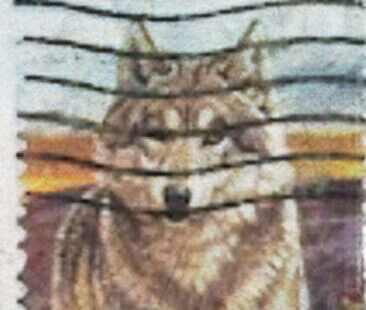
Book Review:
A Place to Land: A Tanka Prose Memoir
By Dru Philippou
Printed by Kindle Direct Publishing
2022, Paperback, Kindle
P-ISBN: 979-874324398
$17.00 (paperback), $8.99 (Kindle)
Ordering Information
Reviewed by Tish Davis

The epigraph to Dru Philippou’s new memoir quotes the Spanish philosopher Jose Ortega y Gasset: “Tell me the landscape in which you live, and I will tell you who you are.” Through the “song” of tanka prose, Dru Philippou conveys with poetic frankness who she is and has become through the various landscapes she’s inhabited. A Place to Land recounts not only her early, unexpected journeys—destinations a child cannot control—but also how time has left its indelible mark as she crossed new bridges without ever losing sight of her homeland.
Those landscapes begin on Cyprus. For some, that isle is just a location on a map. For Philippou, it is the foundation of her childhood—a model where neighbors of different nationalities originally shared the gift of friendship.
Strovolos
What remains most vivid is our old Turkish neighbor as she calls my mother over for coffee and dessert: “Ela, kopiaste, ela.” After coffee, she turns the small cups upside down on their saucers, waits for the grounds to settle. From behind her veil, she studies the dregs for my mother’s future. I sit at a small table, pour sweetened black brew for my doll, and whisper my own fortune into her ear.
white custard
drenched in rosewater
against the tide of terror
what sweet things
of life remain?Later that year, I no longer hear the neighbor’s welcome. Greek and Turkish Cypriots turn on each other, violence escalates to civil war.
“Strovolos” appears in the book’s first section, “Goddesses,” which contains tanka prose about the years when Philippou was a young girl. Cyprus’s civil war leads the poet and her family to England, and that move is depicted in the following two pieces: “Tug O’War,” a reflection on “the moment our ship docks in Southampton,” and “Holding On,” which is set in the family’s new home in London. (For this reviewer, the fact that “Strovolos” and “Holding On” bookend “Tug O’War” was a brilliant formatting decision.) While there is a lightness in “Holding On,” with the poet’s mother inviting other immigrants to her home and offering “dishes of feta cheese, olives, pickles yellow peppers, hummus and pita for dipping,” the past reappears in the opening tanka,
grapevines weave across the railings of the front porch. . . ancestors stare in sepia tones
and the concluding one, the most poignant reminder:
in the almond grove
behind her mother’s house
she played with other kids,
counting and teasing
in colloquial Greek
By the time “Goddesses” concludes, the young girl—who had to struggle to learn a new language and acclimate to new routines—is a teenager. I was deeply moved by the subtleness in the section’s last tanka prose, “At Closing,” where a memory of her grandmother gently and unexpectedly appears.
At Closing
A crystal chandelier sheds glittering light over the “sold” ivory wing chair. I rummage through a box of lace doilies and table runners by the hushed aisle of books. Handbags and hats are up for grabs. Ball gowns. An array of vintage dresses. Nothing so far soothes. In the bric-a-brac, I find a tea cosy like my Grandma’s and bury it under the pile.
beyond
the child’s fingertips
weighted with longing
a heart-shaped stone
hangs from a ribbon
In the book’s second section, “Gods,” the poet dips her pen into an ink that memorializes not only the influence of male family members—father, grandfather, uncle— but also some of the Greek gods and even the medieval Greek hero Digenis Akritas. While several of these poems skillfully incorporate both the poet’s family members and the selected deity or hero, it was interesting to me the frequency with which my hand kept turning back the pages to reread “Holy Fire.”
Holy Fire
As I join the crowd of children surrounding the knife-grinder, Mrs. Walder struggles down her steps, carrying a bundle of knives wrapped in muslin. I run to fetch them for the grinder. He adjusts his spectacles, pumps his bicycle pedals. Pressing a bone-handled carving knife to the spinning grindstone, he whisks back and forth, running his thumb along the edge, testing the blade’s sharpness. He grabs another knife and the heavenly whir begins again. Golden sparks fly into our faces, but no one dares surrender their place.
knives and scissors
shears and daggers
objects of mastery
this mender
of children’s hearts
In many of the tanka prose in this second section, the poet is still a child or recalling a memory from childhood. The innocence in Philippou’s tanka that concludes “Holy Fire”—the image of a knife-grinder mending children’s’ hearts —will always be with me.
“Communion” is the title of the book’s last section. The location is New Mexico, where the author now resides. There is intimacy in many of these ten works, an acceptance, and finally, a sense of “place.”
In “Passing By” for example, after a long hike down an old stagecoach trail to the hot springs, the poet, now a traveler herself, observes the remnants of travelers past. She finds old cabins destroyed by a flood, what is left of the bridge still embedded in concrete, and the pools where women once gathered to wash clothes and bathe. Here is the last sentence and closing tanka:
Long before the Spanish arrived, Native Americans called these springs Wa-pu-mee, waters of long life.
a naked child
casts her shadow
in the sand
sharp angels echo
ancient petroglyphsin a hundred years
who will see my imprint
who will know
I knelt at the edge
of this river
I like “Passing By.” For me, the last tanka represents a spiritual reality. The poet is not lamenting life’s brevity but observing, without judgment, the waters of life.
There is a musicality to Philippou’s writing, and I enjoyed reading the tanka prose out loud. The only piece where the “sound” wasn’t pleasing to my ear was “From Water to Land.” In this tanka prose, the poet is kayaking “through Eagle Nest Lake to a narrow channel that leads to a dam, one hundred and forty feet high. I steer over the floating rope barrier, then past Do No Go Beyond This Point.” Initially the image of passing the Do No Go Beyond This Point grabbed my attention. However, the expository tanka prose (slightly over one hundred words) is unnecessarily “weighted” due to an overuse of first-person subject-verb.
After securing my boat, I climb onto the bank, noon-day sunshine at my back. I sway with an unsteady gait, remnant swells still in my limbs. On all fours, I clamber up the slope and then scale a metal staircase. I quickly walk the dam from end to end, noticing long, sinuous cracks in the concrete.
Going down, I dislodge a rock that seems to roll toward the edge forever.
This section also contains a longtime favorite of mine, “Hipólito, the Herder” (1912-1971).
Hipólito, the Herder (1912-1971)
with his crook
he navigates
the rough terrain
early bluegrass
and white clovervillagers
liken the shepherd
to ruddy-limbed Pan
piping to nymphs
near a springrustic viands
for his fare
and tinkling bells
the heavenly sleep
of the herderMy friend tells me: “Go down from the trail over the matted grass and up along the fence. Pass the water trough to the cedar in the distance, shading the grave and the red and yellow tulips that I planted last year. Hipólito is buried there.” Nothing but his birth and death are known, chiseled in a wooden cross. But my friend often says, “Go by Hipólito’s grave.”
In her commentary “Entering the Mystery of Hipólito, the Herder” (Haibun Today, Vol. 5, No. 4, 2011), Philippou shared:
My writing demands tuning out the noise of the external world and tuning into an inner world.
Writing “Hipólito, the Herder” has unexpectedly taken me into the realm of myths. In consciously relating them to my life as a writer, I have come to understand how these ancient stories are more than myth.
As readers turn the pages of A Place to Land, they will discover Philippou’s understanding of the symbolism in these ancient stories has enabled her to tap into that spirit and successfully share hers.
About the Reviewer

Tish Davis lives in Northern Ohio. Her tanka and related forms have appeared in numerous online and print publications. When she isn’t busy with work and grandchildren she enjoys exploring the local parks with her husband and three dogs.
